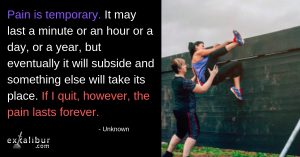Multitasking is our answer to getting more done. U nfortunately, the research is incontrovertible. That technique means we get even less done. I’ve got one idea you should consider.

It’s not the clutter of the desktop or inbox … but the clutter of the mind that scuttles our personal productivity plans and leads us into unproductive habits and wasted time.
Yes, I know, our inbox is spawning new life forms, ending the paper flood has been about as successful as ending world hunger and our mobility means that we have to juggle all of this like we’re riding a unicycle.
We’re all too often infected with the attention span of a mosquito.
We’re moving fast … but we aren’t getting anywhere.
More than ever, our suffering productivity starts with The Great Multitasking Hoax: It’s killing us.
Most of our conversations about personal productivity seem to revolve around related fields like organization or time management … and lack of focus … but it’s probably more about controlling our environment.
[pullquote]The great mystery isn’t that people do things badly but that they occasionally do a few things well. The only thing that is universal is incompetence. Strength is always specific! Nobody ever commented, for example, that the great violinist Jascha Heifetz probably couldn’t play the trumpet very well. ~ Peter Drucker[/pullquote]
“I didn’t get anything done today”
How many times have you ended your day with the troubling thought that you really got nothing done, and in particular, didn’t get anything done you had on your list to get done that day?
As we have discussed, distractions are a core part of this issue, but multitasking is another enemy we need to destroy.
One thing at a time will always be more productive and more fulfilling than trying to multi-task your way through your to do list. Are you looking for a busy day or a powerful, successful day?
What’s the sign of a Cluttered Mind?
The consequence of a cluttered mind is our inability to focus on one thing at time, fueled by our obsession with multitasking.
In many ways, technology has driven us to overestimate our multitasking abilities … and science has repeatedly confirmed that we are misguided about this.
Consider the results of one man’s decision to stop multi-tasking for a week.
Multitasking has always been the wrong approach
Sure, you can probably watch TV while you’re ironing, but that’s about the limit.
This is not a new phenomenon, nor has more recent research changed the findings. More than 7 years ago , the New York Times summarized the most current data then available on failed multitasking.
More recently, Forbes magazine examined recent Stanford University research on multitasking and found:
“… that multitasking is less productive than doing a single thing at a time. The researchers also found that people who are regularly bombarded with several streams of electronic information cannot pay attention, recall information, or switch from one job to another as well as those who complete one task at a time.”
The research is incontrovertible
An article in Entrepreneur magazine summarized recent research from the University of London, which found
“… that participants who multitasked during cognitive tasks experienced IQ score declines that were similar to what they’d expect if they had smoked marijuana or stayed up all night. IQ drops of 15 points for multitasking men lowered their scores to the average range of an 8-year-old child.”
Just Google the term multitasking and you’ll be overrun with the evidence of the failure of multitasking.
Go somewhere else to regain your focus
One thing really works for me … and the more I talk to others, the more I’ve discovered it works for them, too.
It’s stupidly simple and it doesn’t seem like it should work at all. In fact, I’m not exactly sure why it works … but it seems like it’s connected to our ability to focus.
What is it?
Go somewhere else. It doesn’t really matter where.
Coffee shops work great for me, for example.
Part of it, I think, is because the change of scenery disconnects the usual wiring.
Our brain recognizes that we’re moving to another place, and since it’s coming with us, it recalibrates and refocuses where we point it.
A different environment makes a big difference
It strikes me that in this totally different environment, the old circuits take a break and a new channel opens up waiting for us to direct it. The customary input channels that flood our office are temporarily offline and it makes a huge difference.
Of course, it doesn’t hurt that our coworkers can’t tap our shoulder for a question, or stand in our office doorway while we’re on the phone and trying to answer email.
Without realizing it, we totally re-orient ourselves with greater focus and greater productivity.
It doesn’t have to be a coffee shop.
You might stay home one morning and work at your kitchen table … but the process is the same.
Since you can get Internet almost anywhere as certainly as you can get it in your office, you could still reach a stalemate with the same email traffic and web sites. Yet, when you’re focusing on a single screen, and with a single task foremost in your mind, your mindset changes.
Finding a new location is not the only suggested technique to combat our tendency toward multitasking, but as you peruse some of the referenced articles here, you may discover other tools you might use.
Make a move today
Valve Corp., a video game maker in Bellevue, Wash., is known as the “bossless company”. Each of their 300 employees has a desk mounted on wheels so each of them can change locations throughout the day and set up work areas in that suit their needs.
Try it when you’re feeling like your mosquito brain is on caffeine overload.
Change places and only bring along a simple list of what you need to get done … and do it.
You’ll be amazed at how much you’ll get done.
Question: What technique have you adopted to create a singular focus and avoid the delusion of multitasking? Why not join the conversation and share your thoughts and comments? You can add your message easily by clicking the link to Facebook Page or @Exkalibur on Twitter. I visit them every day and look forward to discussing these ideas and concepts with you.




